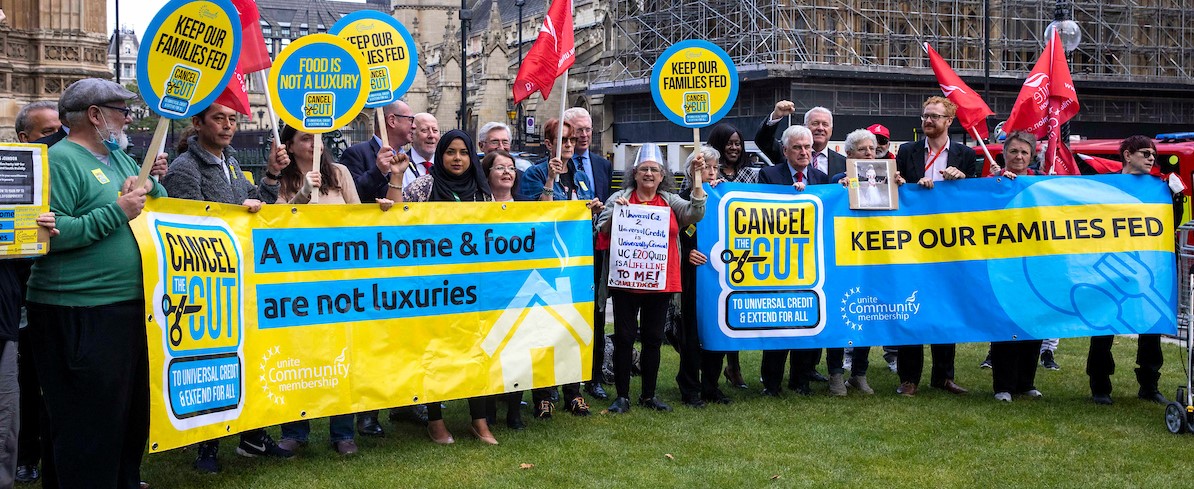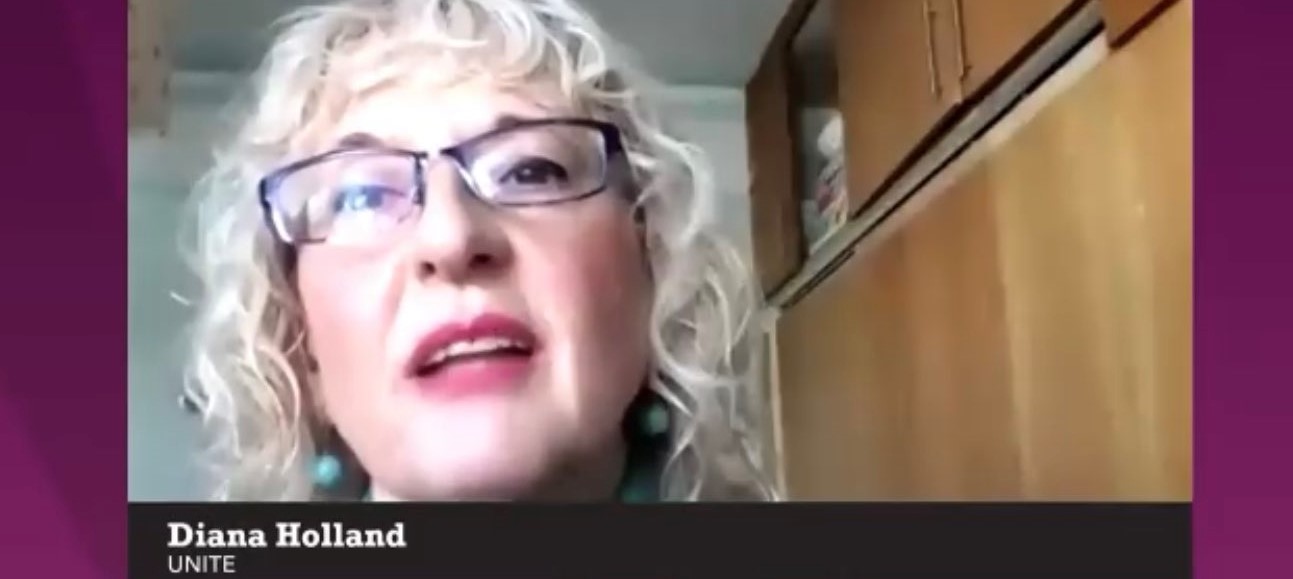Stand up
In part 4 of our Disability History Month series, UNITElive speaks to Unite equalities rep Marina Gunn about changing perceptions that others have about people with disabilities.
Dry humour comes naturally to Marina Gunn, as does standing up for people.
The Unite equalities rep is quick to joke about the significant nerve damage to her leg, which was caused by a botched operation in 2011.
“I can’t get my leg over,” Marina quips, leaving me attempting to stifle a grin.
Her husband Andy, who was born without a leg and wears an artificial one, doesn’t escape without a ribbing either.
“People would talk to me, instead of my husband and they’d say â€oh poor Andy’ while he was sitting there,” recalled Marina. “So I’d say â€well there’s nothing poor about him and he’s a bloody idiot. He’s always putting his foot in his mouth.
“You should see people’s faces when you say something like that. They’re like â€oh she didn’t!’. We’re still people, we’ve still got a sense of humour. Compassion is fine, it’s nice, but don’t let it overwhelm you. I haven’t lost my brain cells.”
‘It’s mostly ignorance’
Breaking the ice is one way to tackle the often difficult reactions people have towards those with disabilities. Sometimes, however, direct intervention is needed.
“It’s mostly ignorance,” says Marina, but that can lead to needless obstructions for disabled people, who are often already expending extra energy just to carry out their daily lives.
Marina cites an example were a colleague repeatedly sat at her desk, which was signposted and positioned in a place that allowed her easy access to workplace facilities.
As Marina’s disability is hidden and she doesn’t always use her walking stick in the office, her colleague refused to acknowledge the allocation.
“One morning I said â€what do you want me to do? Do you want to me show you my stick?’ I explained everything to him and he was so sorry. It was because he didn’t understand. That’s the problem, people don’t understand,” said Marina.
“Managers don’t understand. They don’t understand that sometimes you might have been up â€til four or five in the morning â€cos you’re leg’s on fire. You hide it well, you crack a joke, but if you phone in sick, they think â€she’s been off, I bet she’s had a lovely time.’”
Andy suffered similar issues at the supermarket he spent 15 years working for. Once his bosses even wanted to discipline him for taking two days off, after painful blisters developed on his stump.
That’s why Marina takes such an active role on Unite’s National Disabilities Committee – she understands that disabled people need help if they’re to be treated fairly at work.
‘We’ve got to change perceptions’
Marina inherited her fighting spirt from her dad, Morris, who was a committed RMT member during his career with Transport for London.
Marina also saw how a lack of disability legislation prematurely ended Morris’ work-life. A diabetes diagnoses forced him to retire as Liverpool St Station supervisor in 1993 – two years before the Disabilities Discrimination Act was introduced.
“The law is better now,” Marina said. “If it had been in place for my dad, he’d still be at work. There would have been reasonable allowances made.”
Though there have been some improvements for disabled people at work, pernicious preconceptions and misunderstandings within society are still very much at large.
“We’ve got to change perceptions. That’s why Disability History Month is so important. People shouldn’t be afraid to talk to somebody with a disability. They shouldn’t be afraid to ask somebody about what’s wrong with them,” Marina said.
“I’m not ashamed, with Andy, my dad or myself, about explaining our disabilities. It’s not my barrier – it’s yours.”
 Like
Like Follow
Follow


